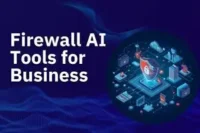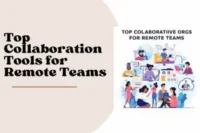AI for Event Planning: How Smart Tools Can Plan Perfect Events in Minutes
Published: 25 Aug 2025
Event planning has entered a new era — one powered by AI for Event Planning. No more sleepless nights juggling vendors, schedules, and endless checklists. Artificial Intelligence is transforming how events are imagined, organized, and experienced. From brainstorming creative ideas to managing guest lists and predicting audience preferences, AI helps planners create smarter, smoother, and more memorable events.
Think of it as your ultimate event partner — one that never sleeps. With tools like ChatGPT, Cvent, and Canva AI, you can design stunning visuals, automate marketing, and analyze engagement in seconds. Whether you’re hosting a corporate conference or a dream wedding, AI for Event Planning gives you the precision, creativity, and speed to turn any vision into reality — effortlessly and brilliantly.
1. Key AI Tools and Platforms for Event Professionals
Artificial Intelligence is no longer a luxury for event planners- it’s becoming an essential part of the toolkit. The right AI software can handle repetitive tasks, generate creative assets, and even optimize decision-making, freeing up time for you to focus on strategy and experience.
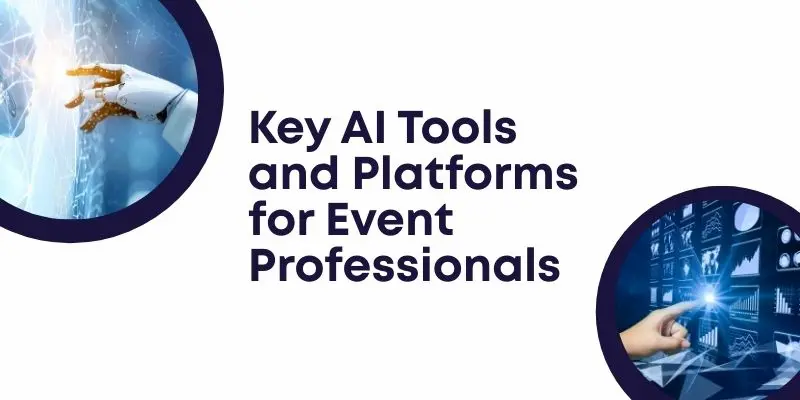
Just as AI for restaurant management streamlines operations and enhances customer satisfaction, AI for event planning empowers organizers to deliver seamless and unforgettable experiences.”
Essential AI Categories for Event Planning
- General-Purpose AI Assistants
Tools like ChatGPT, Google Gemini, and Bing Copilot are versatile for brainstorming ideas, drafting marketing copy, creating scripts, and answering planning questions on demand. They’re ideal for tasks that require flexibility and quick turnaround. - Design and Branding Platforms
AI-powered tools such as Canva, Beautiful.ai, and Synthesia make it easy to design event logos, presentations, banners, and videos without advanced design skills. These platforms also offer templates specifically designed for events, saving hours of creative work. - Event-Specific Planning Solutions
Platforms like Cvent, Bizzabo, and Whova integrate AI features for venue sourcing, budgeting, scheduling, and attendee management. They centralize event data, making coordination easier across teams. - Audience Engagement Tools
AI-driven engagement platforms like Zenus and ClickUp AI help create personalized attendee experiences, from targeted content suggestions to real-time networking recommendations. - Media Creation and Enhancement Tools
Free and paid AI image, video, and music generators (e.g., DALL·E, Runway, Soundraw) allow planners to produce promotional visuals, teaser videos, or custom event soundtracks in minutes.
Why These Tools Matter
In today’s competitive event landscape, AI tools offer three major benefits:
- Speed – Automate repetitive processes and meet tight deadlines.
- Creativity – Generate fresh ideas and unique assets without starting from scratch.
- Precision – Use data-driven insights to make informed decisions and improve event outcomes.
Choosing the right mix of general-purpose and event-specific AI platforms ensures that every stage — from concept to execution — is streamlined, consistent, and impactful.
2. AI-Powered Event Concept and Creative Design
A successful event begins with a strong concept — one that captures attention, resonates with the audience, and sets the tone for everything that follows. AI can now play a pivotal role in this creative stage, helping planners develop original ideas and turn them into compelling visual and auditory experiences.
Generating Unique Themes and Event Names
AI brainstorming tools like ChatGPT, Copy.ai, and Jasper can instantly produce lists of creative themes and event names tailored to your target audience, industry, or purpose. By feeding the AI with details — such as the event’s goal, demographic, and tone — you can receive dozens of fresh ideas in seconds.
- Example: For a tech conference aimed at startups, AI might suggest names like Innovate Now, Future Founders, or VisionX Summit.
This not only saves time but also ensures you have multiple angles to choose from, each optimized for impact.
Branding Assets with AI
Once the concept is in place, branding becomes the next crucial step. AI-powered design tools like Canva, Looka, and Brandmark can generate logos, color palettes, and typography styles that reflect your theme. These tools use algorithms to align design choices with your brand personality and audience expectations.
Creating Visuals That Stand Out
AI image generators such as DALL·E, Midjourney, and Stable Diffusion enable you to produce high-quality, custom visuals without hiring a designer. From hero images for your event website to unique social media graphics, these tools offer limitless possibilities. You can even request multiple variations to fine-tune the final look.
Video and Animation Production
Short videos and animations are essential for event promotion. Platforms like Synthesia, Pictory, and Runway can create professional-quality promotional videos, animated intros, or highlight reels using text prompts or pre-recorded footage. This is particularly useful for teaser campaigns and social engagement.
Custom Music and Soundscapes
Music plays a powerful role in shaping the event atmosphere. AI music generators like Soundraw, AIVA, and Boomy can create background music, intro tracks, or even themed playlists that match the event vibe — from upbeat networking sessions to elegant gala dinners.
Why AI Enhances Creativity
- Speed and Scalability: Generate dozens of creative options in minutes.
- Consistency: Maintain a unified theme across visuals, music, and branding.
- Cost Efficiency: Reduce reliance on expensive design and production teams.
By blending human vision with AI capabilities, planners can create distinctive, memorable events that stand out in a crowded marketplace.
3. Smart Logistics and Operations Management
Once the creative concept is set, the real challenge begins — turning ideas into a flawless event experience. Logistics can be overwhelming, but AI can streamline the process by managing details with speed, accuracy, and adaptability.
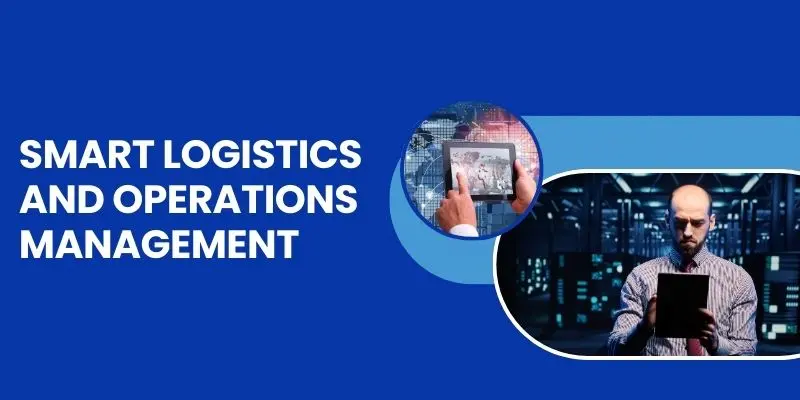
From finding the perfect venue to planning schedules and budgets, AI tools can help event professionals work smarter.
AI for Venue Selection
Finding a venue that matches your event’s size, style, and budget can take weeks of research. Platforms like Cvent Venue Sourcing, Bizzabo, and EventUp use AI to match event requirements with suitable venues. They analyze location, capacity, amenities, and even attendee travel patterns to recommend the best options. Some tools can also factor in weather data, local traffic, and accessibility needs for a more precise choice.
Budget Estimation and Optimization
AI-driven budgeting tools, such as EventBudget and features within ClickUp AI, can predict costs based on event size, type, and location. They allow planners to test different scenarios, compare vendor rates, and identify areas to save money without compromising quality. AI can also monitor expenses in real time to prevent overspending.
Efficient Scheduling and Resource Planning
Managing event timelines and resources manually can lead to errors and delays. AI scheduling tools like Asana AI, Monday.com, and Cvent can automatically generate activity timelines, assign tasks to team members, and optimize resource allocation. They adapt instantly if changes occur — such as a speaker cancellation or vendor delay — ensuring the schedule stays on track.
Catering Recommendations
AI-powered platforms like CaterSpot and Plateful AI can suggest catering options based on attendee preferences, dietary restrictions, and budget. They can even predict portion sizes to reduce waste, and recommend menu items aligned with your event theme.
Décor and Design Suggestions
Tools like Pinterest AI Lens or Interior AI can visualize decoration ideas before purchase. They can generate 3D layouts, color schemes, and furniture arrangements to match your theme, saving time during setup.
Entertainment Selection
AI can recommend entertainment options — from live bands to keynote speakers — by analyzing attendee demographics and past engagement data. Tools like GigSalad AI or event talent marketplaces can filter options that align with the mood and style of your event.
Why AI is a Game-Changer for Logistics
- Time Savings: Automates repetitive, manual planning tasks.
- Cost Control: Identifies the most budget-friendly yet high-quality options.
- Flexibility: Adapts quickly to last-minute changes and challenges.
By integrating AI into operations, planners can shift their focus from managing chaos to creating exceptional experiences.
4. Automating Marketing and Promotional Campaigns
Marketing is the lifeline of any event. Even the most well-planned event can fall flat if people don’t know about it or feel compelled to attend. AI takes the guesswork out of promotion by creating personalized, high-quality content at scale — from catchy email subject lines to fully designed landing pages.
AI for Email Marketing
Email remains one of the most effective channels for event promotion. Tools like HubSpot AI, Mailchimp AI, and ActiveCampaign can:
- Write subject lines optimized for high open rates.
- Generate tailored email body content for different audience segments.
- Suggest the best send times based on engagement data.
For example, you can ask AI to create one email for early-bird ticket buyers and another for last-minute registrations, ensuring each message feels relevant and timely.
Crafting Social Media Content
AI platforms like ChatGPT, Lately.ai, and Buffer AI can quickly generate captions, hashtags, and content calendars for social media promotion. They can adapt tone and style for different platforms — professional on LinkedIn, casual on Instagram, or fast-paced for Twitter/X.
You can also use AI-powered design tools like Canva to create eye-catching posts, reels, and stories without needing a graphic designer.
Ad Copy and Campaign Optimization
Running ads on Facebook, Instagram, or Google can get expensive if the targeting isn’t precise. AI tools like AdCreative.ai and Phrasee can:
- Generate multiple ad copy variations in seconds.
- Test which wording, headlines, or calls-to-action drive more clicks.
- Automatically adjust targeting based on performance data.
Designing Landing Pages and Event Websites
Your landing page is the central hub for information and ticket sales. AI site builders like Unbounce Smart Copy, Wix ADI, and Webflow AI can design conversion-focused pages quickly. They can:
- Suggest layouts based on your event type.
- Write engaging headlines and descriptions.
- Integrate forms, countdown timers, and call-to-action buttons.
Blog Posts, PR Articles, and Event Materials
Long-form content such as blog posts, press releases, and speaker spotlights can build anticipation. AI writing assistants like Jasper and Copy.ai can draft these in minutes, maintaining brand tone and structure.
For physical materials — brochures, flyers, and banners — AI-powered design tools ensure your branding remains consistent across all formats.
Why AI Works for Event Marketing
- Scalability: Create and adapt content for multiple channels instantly.
- Personalization: Tailor messages for different audience segments.
- Data-Driven: Optimize campaigns based on real-time performance metrics.
By automating marketing with AI, event planners can maintain a strong promotional presence without draining time and resources — ensuring their event reaches the right people at the right time.
5. Sponsorship and Partnership Development with AI
Securing the right sponsors and partners can elevate an event’s quality, reach, and profitability.
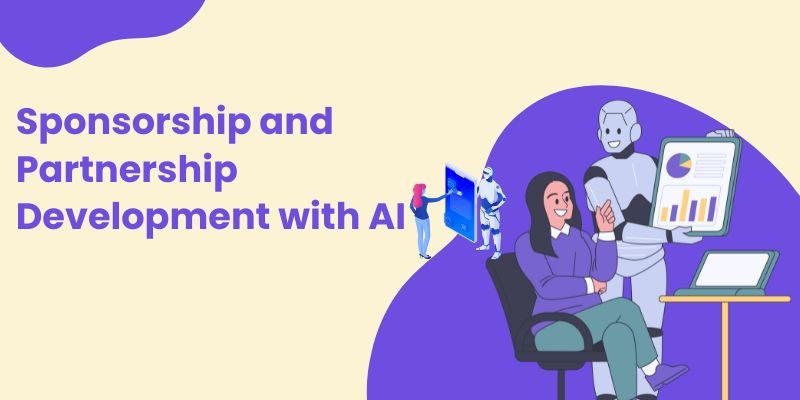
AI makes this process faster, more targeted, and more persuasive — from identifying potential sponsors to creating personalized, high-impact proposals.
Drafting Proposals and Pitch Decks
AI writing tools like ChatGPT, Jasper, and Copy.ai can create professional sponsorship proposals in minutes. By providing details about your event’s audience, theme, and expected reach, AI can:
- Craft compelling introductions that highlight mutual benefits.
- Present audience demographics and engagement statistics in persuasive language.
- Suggest value-added benefits for sponsors, such as branding opportunities, speaking slots, or exclusive networking access.
For visual materials, platforms like Beautiful.ai, Canva, and Tome AI can design sleek, on-brand pitch decks. They can automatically organize slides, suggest layouts, and include relevant visuals, charts, and event images to make your proposal more engaging.
Personalizing Outreach to Potential Sponsors
Generic sponsor requests often go unanswered. AI can help tailor outreach to each potential partner by:
- Researching company values, recent campaigns, and target markets.
- Suggesting personalized talking points that align with the sponsor’s interests.
- Creating multiple outreach email versions for A/B testing.
Tools like Apollo.io, Clay, and HubSpot AI can combine CRM data with AI-driven insights to ensure every message feels relevant and strategic.
Finding the Right Sponsor Matches
AI-powered platforms such as SponsorMyEvent and Sponseasy can match your event profile with brands actively looking for sponsorship opportunities. These tools assess factors like audience overlap, budget range, and industry relevance to recommend the best fits.
Why AI Improves Sponsorship Success
- Time Efficiency: Cuts down weeks of manual research and content creation.
- Higher Conversion: Personalized, relevant proposals stand out in crowded inboxes.
- Better Targeting: Matches you with brands more likely to say yes.
With AI’s ability to combine data analysis and persuasive communication, event planners can secure stronger partnerships that bring mutual value — ensuring both the event and the sponsor benefit.
6. Optimizing Speaker and Guest Management
A successful event thrives on engaging, knowledgeable, and relevant speakers or guests. AI is transforming the way event organizers find, evaluate, and manage these individuals—making the process more strategic, efficient, and personalized.
Finding, Evaluating, and Managing Speakers
AI-powered research tools and databases can scan vast pools of professionals, industry leaders, and influencers to identify the most relevant speakers based on your event’s theme, target audience, and budget. By analyzing factors such as past speaking engagements, audience feedback, and online reputation, AI can create a shortlist of high-potential candidates in minutes.
Once potential speakers are identified, AI can assist in evaluating them through sentiment analysis of previous talks, audience reviews, or even transcripts of past presentations. This data-driven approach reduces the guesswork, ensuring that chosen speakers align with the event’s tone, objectives, and audience expectations.
In the management stage, AI-based scheduling tools help coordinate availability, travel, and rehearsals—while automated reminders keep everyone informed without excessive back-and-forth emails. This minimizes logistical stress and ensures a smooth experience for both organizers and speakers.
Creating Bios, Introductions, and Moderator Questions
Compelling speaker bios and introductions set the tone for audience engagement. AI writing assistants can craft professional, audience-tailored bios by synthesizing publicly available information, professional profiles, and relevant achievements. These bios can be adapted for use across event programs, websites, and social media.
For introductions, AI can analyze the speaker’s expertise and prior content to create short, impactful narratives that immediately capture audience interest. Similarly, for panel discussions or interviews, AI can generate thought-provoking, relevant moderator questions by reviewing industry trends, the speaker’s published work, and key discussion topics.
By automating the creation of these materials, organizers save hours of research and writing time while ensuring consistent quality and tone across all speaker-related communications.
Enhancing Attendee Engagement and Experience
In today’s event landscape, audience engagement is the core driver of success. Whether it’s a corporate conference, a product launch, or a virtual networking session, attendees expect more than just passive participation — they want to feel involved, heard, and connected. This is where AI-powered tools transform the traditional event experience into an interactive, personalized journey.
AI for Interactive Webinars, Virtual Events, and Networking
Artificial Intelligence is redefining how virtual and hybrid events operate. Instead of relying solely on pre-scripted sessions, AI introduces dynamic interaction and adaptive experiences.
- Smart Q&A Moderation – AI chatbots can instantly filter and prioritize audience questions during live sessions, ensuring the most relevant queries get addressed without time-wasting or off-topic discussions.
- Real-time Polling and Feedback – AI-driven tools can push customized polls based on ongoing discussions, enabling presenters to adapt their content on the spot.
- Automated Networking Matchmaking – Using attendee profiles, interests, and event objectives, AI systems can pair participants with the most relevant people for one-on-one chats, breakout rooms, or group discussions.
- Virtual Reality + AI Integration – In immersive events, AI can adjust environments or activities based on attendee engagement levels, ensuring no one feels left out.
The result is more lively, interactive, and memorable events where attendees actively participate rather than passively consume content.
Personalized Content and Real-Time Recommendations
One of AI’s greatest strengths is content personalization at scale. Instead of delivering the same material to everyone, AI tailors the event experience to each individual.
- Custom Agendas – AI analyzes attendee preferences and automatically suggests sessions, speakers, or workshops that match their professional goals.
- Content Recommendations – Based on real-time behavior (such as which topics they click, watch, or discuss), AI can recommend related sessions or downloadable resources mid-event.
- Adaptive Presentations – AI tools can monitor engagement levels and suggest content changes to speakers — for example, switching to visuals, simplifying explanations, or adding case studies if attention drops.
- Post-Event Follow-Up – AI ensures attendees receive tailored summaries, recommended reading, or networking contacts, extending engagement well beyond the event’s end.
By combining interactivity and personalization, AI doesn’t just keep attendees interested — it makes them feel valued and understood, turning one-time visitors into loyal participants.
Post-Event Analysis and Reporting
Once an event concludes, the work doesn’t stop — in fact, post-event analysis is one of the most critical stages for measuring success, identifying areas for improvement, and preparing for future events. AI is transforming this process by turning raw attendee data into actionable insights.
AI-Driven Surveys and Feedback
Collecting feedback from attendees has always been an essential part of post-event evaluation, but traditional surveys often suffer from low response rates and generic questions. AI changes that by:
- Dynamic Question Personalization: Tailoring survey questions based on an attendee’s session attendance, engagement level, and interests, making feedback more relevant and precise.
- Natural Language Processing (NLP): Analyzing open-ended responses to detect sentiment, recurring themes, and even subtle frustrations attendees may not explicitly mention.
- Automated Follow-Ups: Sending reminders to attendees at the most likely times they’ll respond, increasing participation rates without feeling intrusive.
For example, if a participant attended mainly networking sessions, AI can generate targeted questions about those specific activities rather than asking them about unrelated presentations.
Data Analytics for Deeper Insights
AI-powered analytics platforms go far beyond counting attendance numbers — they reveal how people interacted with your event:
- Engagement Metrics: Tracking session participation, chat activity, poll responses, and time spent in each segment.
- Behavior Patterns: Identifying which topics, speakers, or formats generated the most interest and energy.
- Demographic Insights: Understanding which audience segments were most active or responsive, allowing for more strategic targeting in the future.
By integrating data from event platforms, CRM systems, and social media, AI creates a 360° view of attendee behavior.
Generating Summaries and Improvement Plans
Instead of manually combing through data and writing reports, AI can:
- Produce Executive Summaries: Delivering concise, visually appealing reports that highlight key achievements, challenges, and ROI.
- Highlight Actionable Recommendations: Suggesting concrete ways to enhance future events based on past performance (e.g., scheduling sessions at optimal times, introducing more interactive formats, or expanding certain topic areas).
- Benchmark Against Past Events: Comparing metrics over time to track improvements or detect declines.
These AI-generated insights not only save time but also ensure decision-making is backed by solid, data-driven evidence.
In essence, AI makes post-event analysis faster, smarter, and far more insightful. By leveraging AI-driven surveys, deep analytics, and automated reporting, event organizers can continuously improve experiences, boost attendee satisfaction, and deliver higher-value events year after year.
Alternatives to ChatGPT and Emerging AI Trends
While ChatGPT is a powerful tool for AI-driven event planning, it’s not the only option available.
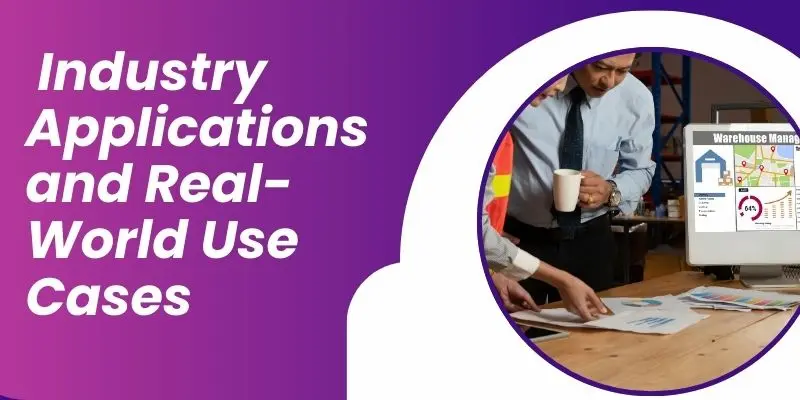
Depending on your event’s specific requirements, budget, or integration needs, other AI platforms may offer better capabilities for certain tasks.
When and Why to Use Other AI Platforms
Different AI platforms excel in specific areas—some are better for data analysis, while others shine in content creation or automation. Choosing the right one depends on your goals, budget, and the level of customization you need.
- For Multimodal Event Content Creation
- Platforms like Claude (by Anthropic) or Gemini (by Google) handle large volumes of text analysis, creative copywriting, and some image integration features. If your event involves creating diverse content — such as promotional videos, infographics, and interactive presentations — you may benefit from combining ChatGPT with these tools.
- Platforms like Claude (by Anthropic) or Gemini (by Google) handle large volumes of text analysis, creative copywriting, and some image integration features. If your event involves creating diverse content — such as promotional videos, infographics, and interactive presentations — you may benefit from combining ChatGPT with these tools.
- For Data-Heavy Analysis and Forecasting
- Microsoft Copilot and IBM Watson are excellent for processing big datasets and integrating them directly with event management software. This is especially useful for budget forecasting, ticket sales prediction, and attendee trend analysis.
- Microsoft Copilot and IBM Watson are excellent for processing big datasets and integrating them directly with event management software. This is especially useful for budget forecasting, ticket sales prediction, and attendee trend analysis.
- For Visual-First Event Planning
- If your event relies heavily on visual mock-ups or stage layouts, tools like Midjourney or DALL·E can generate high-quality, AI-created visuals to guide your decor, signage, and branding choices.
- If your event relies heavily on visual mock-ups or stage layouts, tools like Midjourney or DALL·E can generate high-quality, AI-created visuals to guide your decor, signage, and branding choices.
- For Specialized Event Niches
- Certain industries have niche AI platforms — for example, Bizzabo’s Event Experience OS or Cvent AI Assist — which come with built-in CRM integrations, sponsorship tracking, and targeted networking features. These can outperform ChatGPT when you need deep industry-specific workflows.
- Certain industries have niche AI platforms — for example, Bizzabo’s Event Experience OS or Cvent AI Assist — which come with built-in CRM integrations, sponsorship tracking, and targeted networking features. These can outperform ChatGPT when you need deep industry-specific workflows.
Future Innovations in AI-Driven Event Planning
The event planning industry is entering a new era where AI will handle much more than task automation. Here’s what’s coming:
- Predictive Event Success Scores
AI will soon provide real-time “success forecasts” during the planning phase, scoring event strategies based on audience data, past performance, and marketing reach. - Hyper-Personalized Attendee Journeys
Future AI tools will customize the event experience for every attendee — from suggesting networking matches to dynamically adjusting schedules based on interest levels. - Voice-Activated Event Management
Imagine walking into a venue and simply saying, “Set stage lights to preset two and send catering a 15-minute heads-up.” AI assistants will handle these commands instantly. - AI-Powered Sustainability Tracking
With sustainability becoming a top priority, AI will help track carbon footprint, waste management, and eco-friendly vendor choices for events in real time. - Full AR/VR Event Simulations
Before spending a single dollar, planners will use AI with VR headsets to “walk through” the venue, preview lighting, test seating arrangements, and even simulate audience reactions.
Bottom line: While ChatGPT is a strong all-rounder for AI-assisted event planning, exploring alternative AI tools and staying ahead of emerging trends ensures your events remain innovative, efficient, and future-ready.
Conclusion
AI is transforming the way we plan events and trips, making the process faster, smarter, and more personalized. AI for Event Planning tools, like ChatGPT, automate tasks, generate creative ideas, and help planners save time while enhancing experiences. As the technology evolves, it’s the future of event success belongs to planners who embrace AI for Event Planning — not as a trend, but as a true game-changer. Imagine designing your dream event in half the time, with every detail fine-tuned by intelligent tools that understand your audience better than ever. From crafting creative ideas to automating logistics, AI transforms stressful planning into a smooth, exciting experience.
Whether you’re organizing a global conference or a cozy private event, AI for Event Planning helps you work smarter, save time, and deliver experiences that leave people talking long after the lights go out. The next unforgettable event starts with one smart move — bringing AI to the heart of your planning process. Ming is an essential partner in turning any vision into reality.
FAQs
AI is changing the way events are organized from start to finish. It can schedule tasks, manage guests, match the right vendors, and even create budgets automatically. More importantly, it personalizes experiences by suggesting themes, entertainment, or activities based on audience data. This makes events smoother, smarter, and more engaging.
Yes, AI for trip planning is becoming very popular. These tools recommend destinations, build itineraries, and suggest activities based on your interests and budget. Some apps even adjust your plans in real time if your flight is delayed or the weather changes. It feels like having a smart travel assistant in your pocket.
The best AI depends on whether you’re planning an event or a trip. Tools like ChatGPT and Bard are great for brainstorming and creating schedules, while Eventbrite’s AI features help with ticketing and guest engagement. Travel lovers often use AI trip apps that design personalized itineraries in minutes.
ChatGPT can be your personal event assistant. You can ask it to brainstorm theme ideas, write invitations, build to-do checklists, and even draft vendor communication. With the right prompts, it can save hours of work while ensuring you don’t miss important details. It’s like having a creative partner on call 24/7.
AI technology at events includes smart tools like chatbots that answer guest questions instantly, facial recognition for quick check-ins, and AI-driven ticketing systems. It also suggests personalized sessions or activities for attendees. These technologies improve guest experiences while reducing stress for organizers.
Yes, ChatGPT can help design a complete trip itinerary. It can recommend destinations, activities, transport options, and even budget-friendly accommodations. If you want local tips, dining suggestions, or hidden gems, ChatGPT can also provide those. It takes the stress out of trip planning while adding a personal touch.
Absolutely! AI can generate plans for events, vacations, and even big business projects. It takes your preferences—like budget, location, or audience—and creates a step-by-step outline. This saves time and ensures nothing important gets overlooked. It’s like having a digital planner that works in seconds.
Yes, AI dramatically reduces the time spent on planning. It automates repetitive tasks such as scheduling, reminders, or budgeting. Instead of manually researching options, AI gives you smart recommendations instantly. This frees you up to focus on creativity and decision-making while AI handles the heavy lifting.
Not at all. Many AI tools for event planning and trip planning are free or offer affordable plans. Even premium options are usually cheaper than hiring additional staff. This makes AI accessible for small businesses, solo planners, and even individuals who just want to plan smarter.
No, AI will not replace human planners—it will support them. While AI can handle repetitive tasks and provide recommendations, human creativity, emotional intelligence, and personal judgment are irreplaceable. The future is about collaboration: AI handles the routine, and humans focus on vision, creativity, and relationships.

- Be Respectful
- Stay Relevant
- Stay Positive
- True Feedback
- Encourage Discussion
- Avoid Spamming
- No Fake News
- Don't Copy-Paste
- No Personal Attacks

- Be Respectful
- Stay Relevant
- Stay Positive
- True Feedback
- Encourage Discussion
- Avoid Spamming
- No Fake News
- Don't Copy-Paste
- No Personal Attacks



